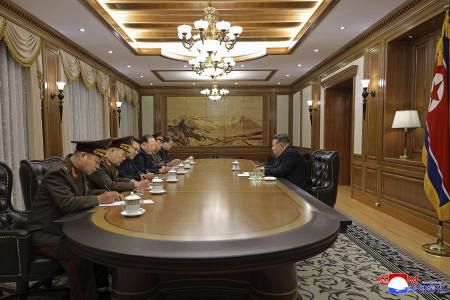In an unfolding development, North Korean leader Kim Jong-un has declared an intention to enhance the country's nuclear capabilities. This emerges as a new challenge to the global efforts led by Japan and other nations aimed at denuclearization on the Korean peninsula. While no explicit timeline has been given for the advanced nuclear arsenal, this bold announcement signifies a pivotal point in North Korea's military and political strategy.
Japan has a vested interest in the denuclearization of the Korean Peninsula due to its geographical proximity and historical tensions with North Korea. The Japanese public is often concerned about the potential threat posed by North Korea's nuclear ambitions. Japan, being the only country to have experienced nuclear bombings, carries a strong socio-cultural sentiment against nuclear weapons proliferation.
The United States and the European Union, similar to Japan, are proponents of global non-proliferation efforts and are pushing for a denuclearized Korean peninsula. However, they may differ in their approach to achieving this. The U.S., for instance, has historically favored direct negotiations and strategic pressure on North Korea, while the EU tends to lean more towards diplomatic discourse.

